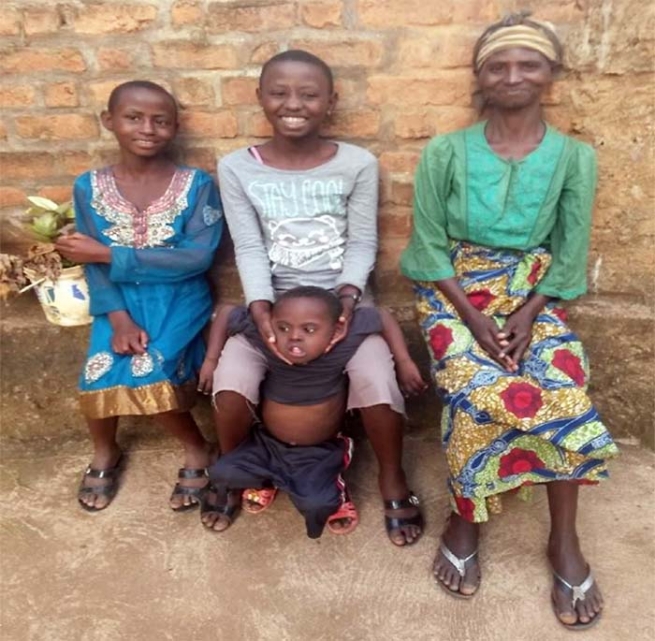Teresa, born in Burundi, has never been to school. At 6, she lost her father and started working on a farm in the countryside. At 14, she was persuaded to take a trip to Bukavu, officially for a visit, but in truth, she was handed over to a Congolese man who forced her to be his wife.
The husband, a violent man, abandoned her in 2007, after she gave birth to 9 children, 3 of whom died at an early age. Mother Teresa then started a small business, but the little capital she had was lost after an illness and, like many other women, she started carrying sandbags on her back for building houses.
She did this job for a few years, then fell ill again and was no longer able to work, pay rent and school fees for her children. The three older boys left home to search for their father. She stayed with Marcelline, 12 years of age, Jeanne, 10, and a disabled child of 8.
"When she came to ask us for help, she spent the night in a small shack and her daughters, who had just finished primary school, collected plastic bottles and filled them with tap water for the women who then sold them at the market, receiving in return just a few pieces of cassava ," said Fr Piero Gavioli, who has spent 33 years in the Democratic Republic of the Congo as a missionary.
Not being able to host the entire family at the Salesian center, due to the lack of space, Fr Gavioli helped Mother Teresa by renting a room, putting in two mattresses, getting medical care for her and her disabled son, finding a school for two of the girls, and he gave her a small sum of money so she could start selling beans. The two daughters were welcomed, exceptionally, in the cutting and sewing course.
Another future is still possible for Mother Teresa and her family.


